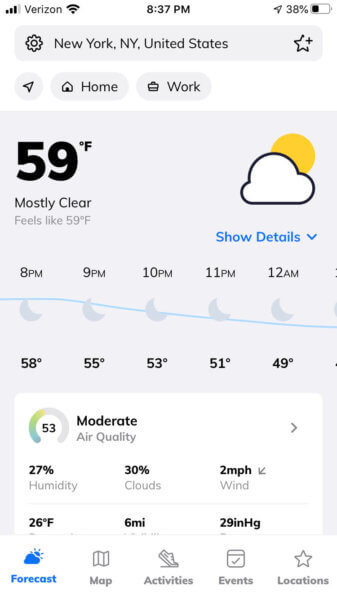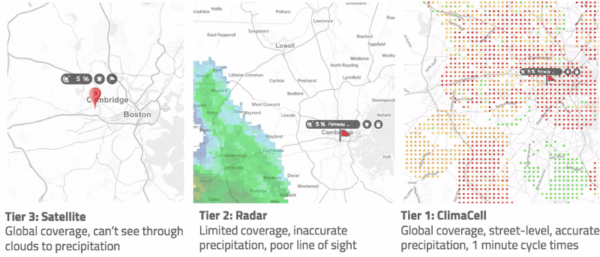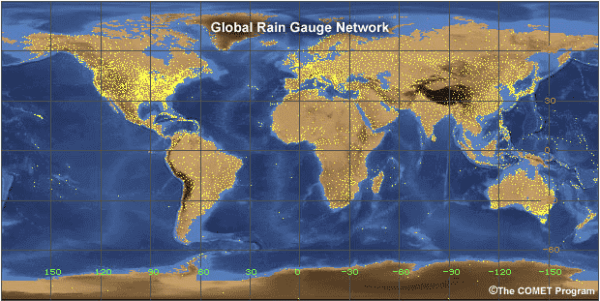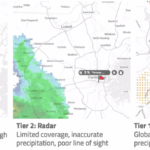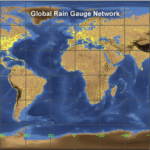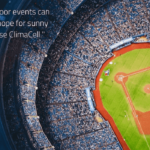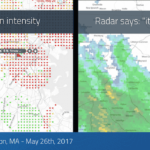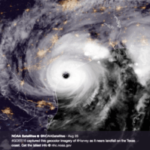The importance of air quality and weather on health has been in the news more than usual lately due to COVID-19.
Initial research suggests that air pollution may exacerbate the disease, however, this is not the only health problem caused by poor air quality today.
An estimated 4.2 million premature deaths globally are linked to ambient air pollution, including heart disease, stroke, chronic obstructive pulmonary disease, lung cancer, and more.
And yet, many health care organizations simply don’t consider air quality and weather data to be a necessity. But this may be changing.
As air quality and health outcomes become more closely linked, more and more healthcare providers are looking at better understanding air quality and how it impacts health today.
Here’s how healthcare and technology can work together to improve health outcomes with better weather data.
Severe Health Risks from Poor Air Quality
It’s no question that health is directly linked to air quality. According to the World Health Organization, worldwide air pollution accounts for:
- 29% of all deaths and disease from lung cancer
- 17% of all deaths and disease from acute lower respiratory infection
- 24% of all deaths from stroke
- 25% of all deaths and disease from ischaemic heart disease
- 43% of all deaths and disease from chronic obstructive pulmonary disease
The most dangerous pollutants for human health are particulate matter, ozone, nitrogen dioxide, and sulphur dioxide. Even short-term exposure to air pollution can lead to reduced lung function, respiratory infections and aggravated asthma. And long-term effects are even more concerning.
Unfortunately, a lack of visible smog doesn’t mean the air around you is healthy. In many cities and even small towns, toxic pollutants in the air exceed the average annual values recommended by WHO’s air quality guidelines. As more research on the subject emerges, there will likely be even more data linking health to the environment, including other weather-driven conditions.
Air Quality Costs Trillions in Health Care Spending
Air quality and weather is not only impacting health; it’s also impacting skyrocketing healthcare costs. The US spends the most of any nation by far on its health care system — approximately $3 trillion dollars in 2013.
If you extrapolate that cost across individuals, the average person in the US spent about about $11,000 per person on healthcare in 2018 — with costs continuing to rise. And a portion of that care is specifically spent on people with health conditions either impacted or caused by poor air quality.
One study found that air pollution cost health care purchasers $193 million for hospital care in California alone.
With costs rising, it’s clear that the healthcare industry needs to invest more in better understanding how air quality and weather impact patients, and in providing better, preventative care centered around air quality.
Using Air Quality and Weather to Drive Better Health
Unfortunately, there’s little the healthcare industry can do to improve air quality overall. Those decisions are up to the government, and therefore we all have to adapt to the existing conditions where we live.
But while air quality may be outside your control, that doesn’t mean everyone has to be exposed to dangerous weather conditions. Air quality and weather data can easily sync up with popular health apps to make sure patients avoid exposure to poor air quality — especially those with high-risk conditions.
If a patient has COPD, for instance, their healthcare provider can recommend they download a health-centric app that includes air quality and weather data to recommend when and if they need to avoid going outside or turn on an indoor air purification system.
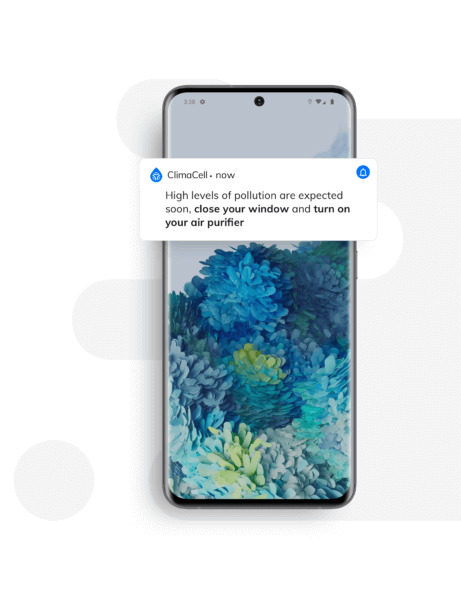
A weather app can also incorporate air quality data so that anyone can better understand the risks of going outside if the air quality is particularly bad that day.
With air quality data in your pocket, there’s a far higher likelihood that patients will actually take action to protect themselves from high risk conditions. It’s an easy and seamless way to improve health outcomes and save healthcare providers significant money.
Incorporate Weather into Healthcare
With a weather API, you can use weather data to drive action-driven improvements within your healthcare systems. Learn how better weather data can actually impact key healthcare outcomes for your patients.

